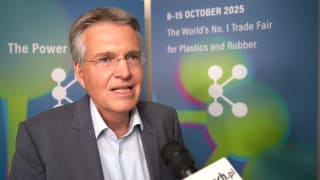 Lanxess is strengthening its commitment to produce premium synthetic rubber from biobased raw materials. As part of this commitment, Lanxess has increased its minority shareholding in Gevo, Inc. that focuses on renewable chemicals and advanced biofuels.
Lanxess is strengthening its commitment to produce premium synthetic rubber from biobased raw materials. As part of this commitment, Lanxess has increased its minority shareholding in Gevo, Inc. that focuses on renewable chemicals and advanced biofuels.Lanxess’ shareholding now amounts to 9.1 percent after the world’s largest synthetic rubber producer invested USD 17 million in the US-company’s initial public offering. Lanxess initially invested USD 10 million in Gevo as part of a private placement in May 2010.
Lanxess’ increased equity stake reflects the good progress made by both companies in developing isobutene from renewable resources. Isobutene is a key raw material needed in the manufacture of butyl rubber.
“As the world’s largest purchaser of isobutene, it is only prudent that we seek other supply options from renewable sources as an alternative to traditional fossil fuels,” said Axel C. Heitmann, Chairman of the Lanxess Board of Management. “This investment also sharpens our focus on ‘Green Chemistry’ and sustainable production, which will gain in significance in the coming years.”
Isobutene is conventionally produced in steam crackers, which use various petrochemical-based materials as feedstock. Alternatively, Gevo is developing a fermentation process to produce the organic compound isobutanol from the fermentable sugars in biomass, starting with corn. At the same time, Lanxess is developing a dehydration process to convert isobutanol into isobutene.
In addition to the share deal, both companies have signed an agreement that gives Lanxess certain exclusive rights to purchase biobased isobutanol from Gevo, while Gevo receives an exclusive first right to supply Lanxess with specified quantities of biobased isobutanol over a ten-year period. This arrangement is still subject to the parties’ completion of a definitive off-take agreement, which is presently in negotiation.
“We are extremely pleased that Lanxess has increased its holdings in Gevo,” said Patrick Gruber, CEO of Gevo. “This new 10 year agreement further validates the technology and investment behind creating isobutene from renewable resources. It solidifies our strategic relationship with a global leader and enables us to better plan our future capacity growth.”
Gevo’s isobutanol can be used directly as a specialty chemical, as a gasoline blendstock, a jet feedstock and through conversion into plastics, fibers, rubber and other polymers. Gevo is currently retrofitting capacity of 22 million gallons per year (MGPY) at its first ethanol facility in Luverne, Minnesota, to produce 18 MGPY (50,000 metric tons) of isobutanol in the first half of 2012. In addition, Gevo plans to expand its production capacity in the coming years through acquisitions and joint ventures and aims to have more than 350 MGPY of production capacity by 2015.
Lanxess’ dehydration process has not only proven to be successful in the laboratory but also in a small-scale reactor in Leverkusen, Germany, over a period of several months. Tests have shown that the process can deliver biobased butyl rubber that meets the rigorous specifications of the tire industry, which represents roughly 25 percent of Lanxess’ sales.
Colorado-based Gevo was founded in 2005 and currently has about 100 employees. It has raised USD 95.7 million through its initial public offering and its stock started trading on the Nasdaq stock exchange on February 9, 2011. Other existing shareholders in Gevo, including Richard Branson’s Virgin Green Fund, have also invested additional funds in the IPO.
Lanxess is the world’s second-largest producer of butyl rubber and has plants in Sarnia, Canada, and Zwijndrecht, Belgium. The company is also investing EUR 400 million in a new butyl rubber plant in Singapore, which comes on stream in the first quarter of 2013.



